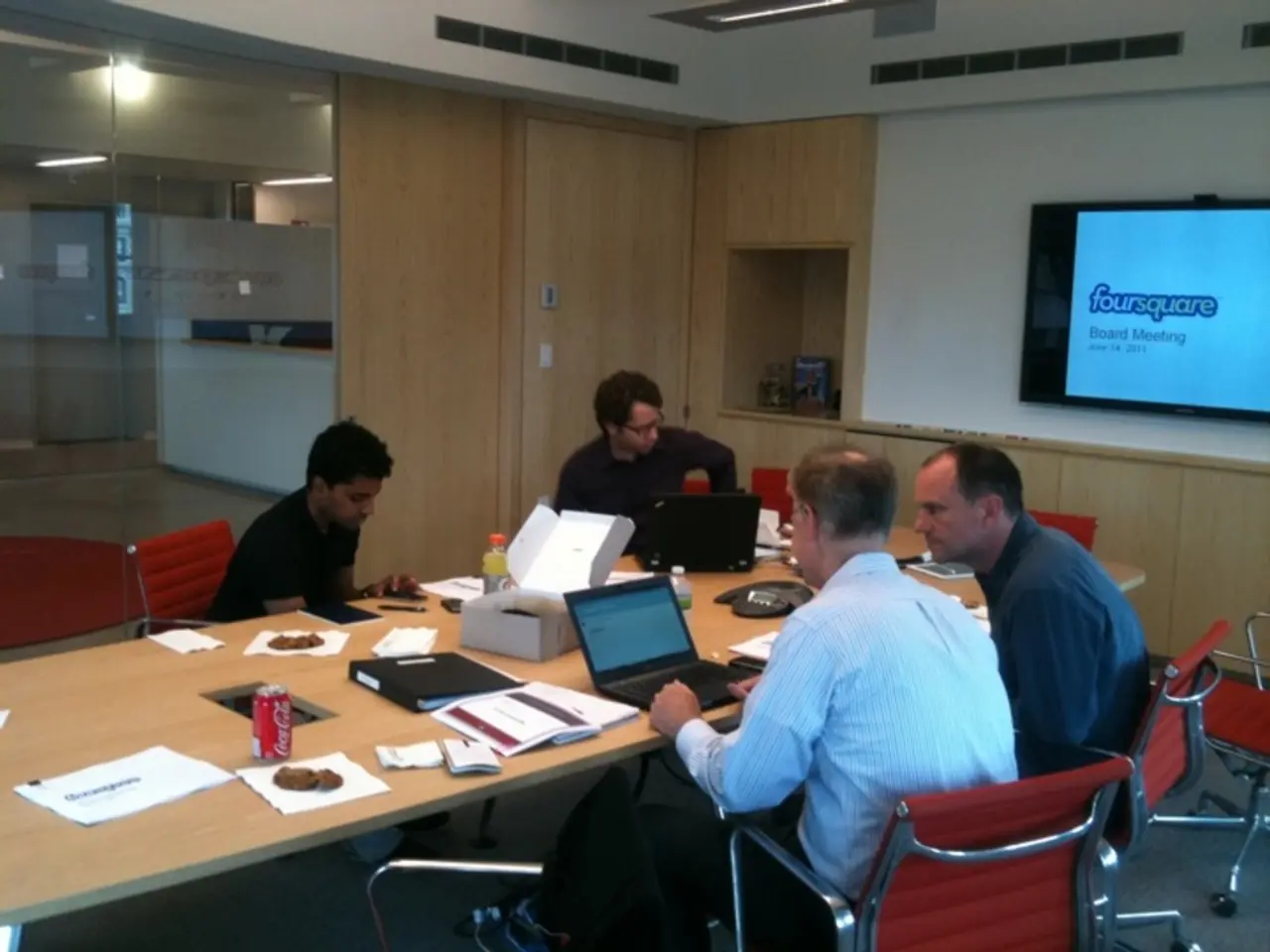Quantum Computing's Influence in Present-day Technological Advancements
In the realm of technology, quantum computing is making significant strides towards commercial viability, marking a pivotal transition from theoretical experimentation. This transformative technology, with its unique properties, has the potential to revolutionize various sectors, from cryptography to drug discovery, by providing unprecedented computational capabilities.
### Current Advancements
Hardware breakthroughs are paving the way for quantum computing's future. Microsoft's Majorana 1 chip, for instance, introduces topological qubits with a fault-tolerant design, offering error resistance by exploiting exotic quantum states. This is crucial for building reliable large-scale quantum systems. D-Wave's demonstration of quantum supremacy in material simulation outperforms classical supercomputers, showcasing practical quantum advantage in specific complex problems. Emerging efforts in photonic quantum computing, such as PsiQuantum, aim to build million-qubit processors that operate at room temperature and leverage silicon photonics, potentially overcoming cryogenic and coherence challenges.
Algorithmic breakthroughs are also accelerating quantum computing's development. Researchers are devising new algorithms that provide exponential speedups for classes of NP search and optimization problems. The synergy between AI and quantum computing is creating a virtuous cycle of technological improvement, with AI optimizing quantum circuit design and quantum processors accelerating machine learning.
The sector has attracted massive investments, totaling over a billion dollars among key players like QuEra Computing, IonQ, Rigetti, and Multiverse Computing, backed by over $44 billion in public funding cumulatively through 2024. National programs like the UK’s post-quantum cryptography migration plan signal government commitment to secure quantum advancements.
### Potential Impacts on Fields
Quantum computing's potential impacts are far-reaching, particularly in cryptography, optimization, drug discovery, weather forecasting, and simulating complex systems. Quantum computing threatens current cryptographic systems, driving post-quantum cryptography development and government plans, such as the UK’s timeline to 2035 for migration. Quantum communication offers ultra-secure quantum key distribution.
In optimization, quantum algorithms promise exponential speedups for complex problems applicable in logistics, financial modeling, and supply chain management, potentially revolutionizing decision-making processes. Faster simulation of molecular interactions and materials at the quantum level accelerates drug design and discovery, surpassing classical supercomputing capabilities in simulating complex biological molecules and chemical reactions.
Improved modeling of atmospheric quantum effects may enhance predictive accuracy by simulating highly complex climate and weather systems with greater fidelity than classical models. Quantum computers can efficiently simulate quantum phenomena in physics, chemistry, and materials science, allowing new insights and innovations that classical computational models cannot achieve within reasonable timeframes.
### Outlook
By 2035, the quantum technology market could reach $97 billion globally, with quantum computing accounting for the majority, from $4 billion in 2024 up to $72 billion. Key industries poised for growth include chemicals, life sciences, finance, and mobility sectors.
The realization of room-temperature, error-resilient qubits (topological or photonic) would be a game-changer, enabling scalable quantum processors that are more accessible and integrated with existing classical computing infrastructure. The convergence of hardware, algorithmic innovation, and AI-quantum hybrid approaches is expected to unlock exponential performance improvements, catalyzing breakthroughs in cryptography, optimization, drug discovery, weather modeling, and simulation of complex quantum systems.
In sum, quantum computing is transitioning from a scientific concept to a transformative technology that will disrupt multiple fields by providing unprecedented computational capabilities. Researchers are actively working on developing error correction techniques and improving qubit stability to address the challenges that lie ahead. The future of quantum computing looks promising, with a transformative impact on modern technology expected across various fields.
- The synergy between AI and quantum computing, driven by AI optimizing quantum circuit design and quantum processors accelerating machine learning, represents a significant intersection of finance, technology, and science.
- As quantum computing moves closer to commercial viability, it will usher in a new era of technological advancements, revolutionizing traditional sectors such as cryptography, drug discovery, optimization, and weather forecasting, while simultaneously introducing new opportunities for investment and economic growth.




